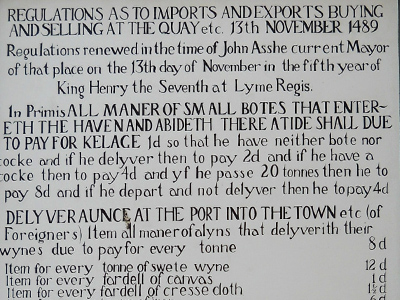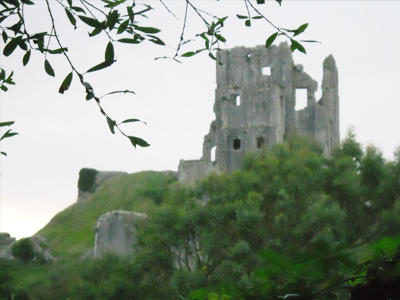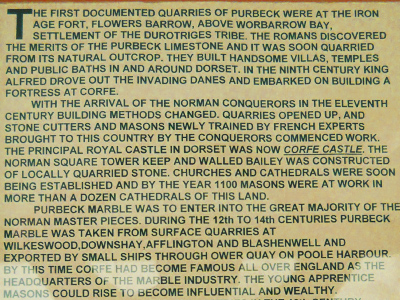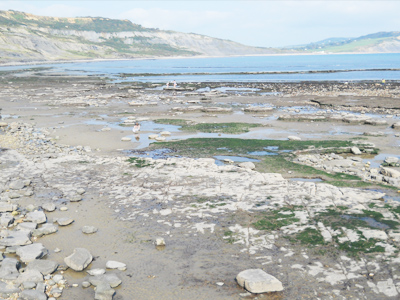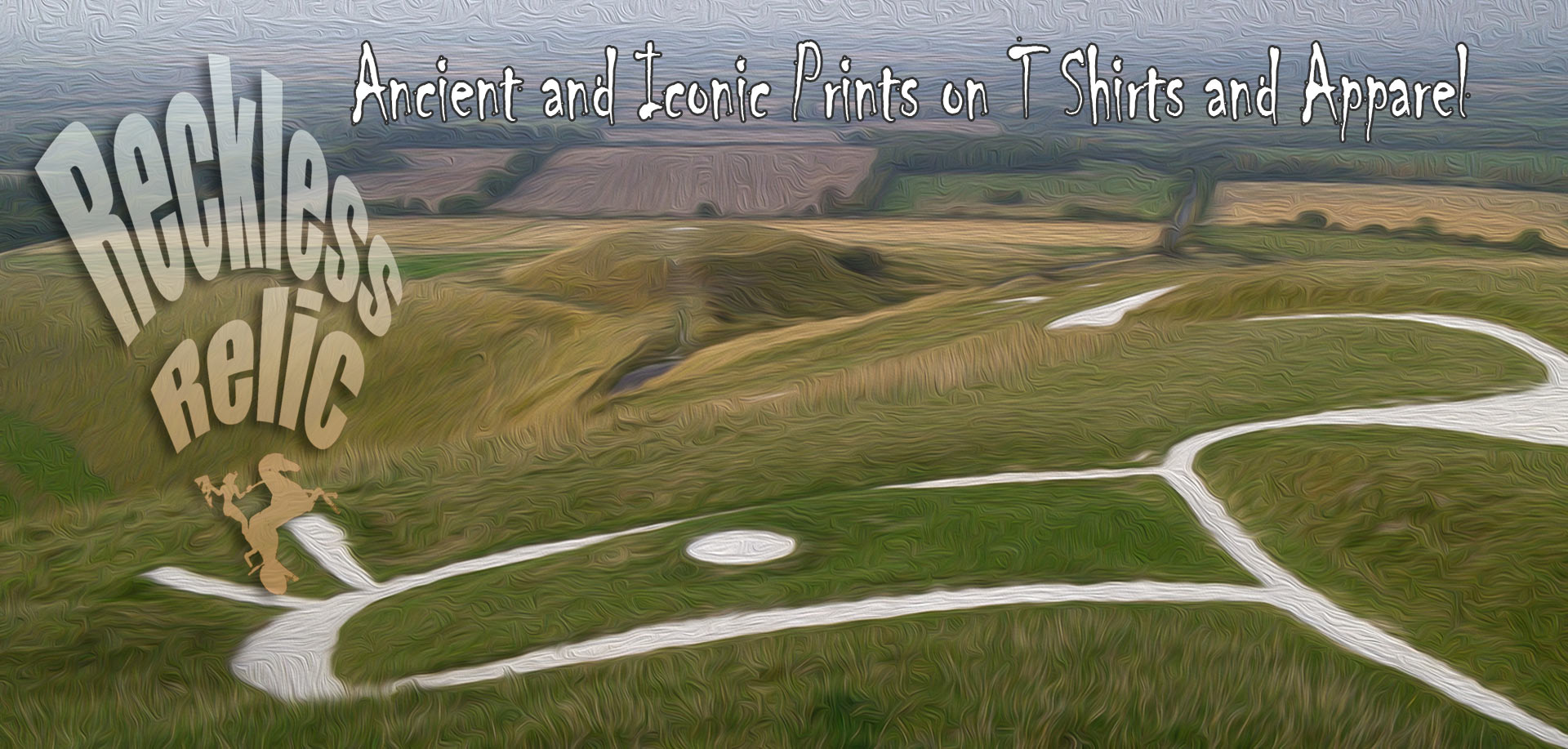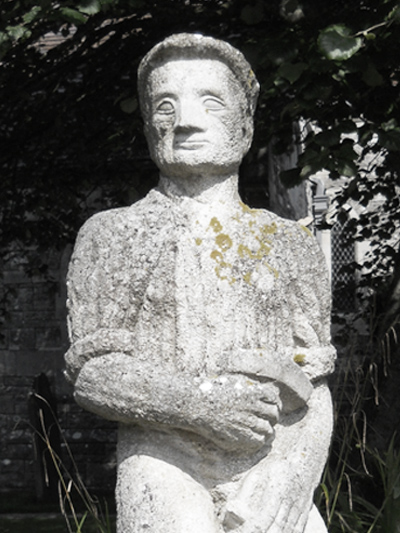
There is nothing better than hopping along for the ride when a friend offers to take you on a trip! We visited the beautiful South of England, journeying to the Isle of Purbeck in the county of Dorset. We were not disappointed and found much to amuse and educate.
Lyme Regis is famous for its fossils, but many will tell you that although they spend hours on the beach there, they don’t find a thing. However, the beach experience and the busy street down through the town is certainly worth stopping for!
Beach combing brought to light some small, smoothed pieces of glass, rounded by the pounding waves. I thought they may look good on a homemade ceiling hanging or light shade – or even perhaps a mobile that could be hung outdoors. They are certainly unique shapes, catching the light in different shades – I thought up cycling these bits would suit someone who loved arts and crafts.
Recent landslides had claimed lives in Dorset after a wet summer – and there has been some coastal erosion at Lyme Regis. The landslide which had fallen from the cliffs turned out to be an old rubbish dump – and it had spilled its contents over the rear of the beach. One old comber, unafraid or oblivious to the danger, was picking his way through the rubbish, although it seemed to us that the stuff couldn’t be more than thiry years old. We didn’t think the beach looked too clean, but it was interesting and extremely scenic. Signs made the danger clear to the visitors and there was a museum.
A further nosey mosey saw us calling into the small village of Corfe – with its iconic ruined castle on a hill above, and a visit to the coast at Worth and Langton Mantravers outside Swanage.
This is the land of quarries and there is a rich history concerning occupations regarding stone, closely tied in with the area. Corfe was the place where the quarry-men updated their ‘Ancient Order of Purbeck Marblers and Stonecutters’ agreements (on Shrove Tuesday every year, before a game of football). We visited the Fox pub where the meetings had always taken place and saw a few artifacts in the tiny museum opposite, which used to be the village lock up!
A walk around the coast near Worth took us to St Aldhelms Head – a scenic path looking out over cliff tops with the blue sea fading into the sky in the distance. The view was superb and the wild flowers were dazzling.
A short distance away was the village of Langton Mantravers with two pubs, a church and a lovely little museum. Barely changed from the seventeenth century it was a little gem, and valued its quarrying history. The museum showed a 20 minute film about the stone quarries of the area and how the stone was used. Apparently there are more farming exhibits for the museum but no place to show them – so sadly they are in storage. The charming museum building had been the vicars stables, behind the church, which itself had been very small at one time, but enlarged over the centuries. One church warden is commemorated even though he was a brandy smuggler who hid his booty in the church roof. When the weight of the brandy caused the roof and walls to collapse, his identity was discovered, because his son had written down all the activities in his diary! I believe this church warden was transported to Australia!
We ended our nosy mosey at the remains of the coastal quarry at Langton Mantravers. Called Dancing Ledge, I think this quarry got its name because of the scrambling and balancing needed to get across and down to the edge of the sea. It really is like dancing when you have to look so closely at where you are putting your feet!
The sun shone on the glittering waves and baked the quarry stone. Some rugged types jumped into a hole which had been blasted by dynamite to allow people to swim without chancing the dangerous tides. Dorset – what a place!
